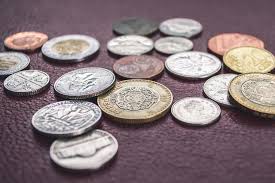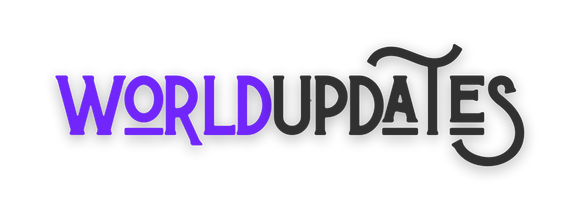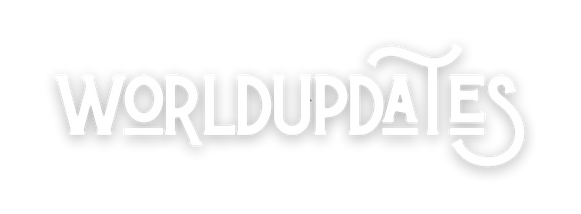Finding the right partner in the vast world of foreign exchange (forex) trading can feel overwhelming. With so many options available, how do you know which one to trust with your investments? This is where a reliable platform comes into play. Exploring myfastbroker.com forex brokers can be a significant first step in your trading journey, offering a streamlined way to compare and select a broker that aligns with your financial goals. Whether you are just starting or have years of experience, understanding what makes a broker great is key to success. This guide will walk you through everything you need to know, making your decision process clearer and more confident.
We will dive deep into the features, benefits, and considerations when navigating the forex market. Think of this as your friendly roadmap to understanding the landscape and making informed choices. We’ll break down complex topics into simple, easy-to-understand language, ensuring you feel empowered, not intimidated.
Key Takeaways
- Understanding the role of a forex broker is fundamental to successful trading.
- Platforms like myfastbroker.com help traders compare brokers based on crucial factors like fees, regulation, and available tools.
- Security and regulation are non-negotiable aspects to check before committing to any broker.
- Different trading platforms (like MT4/MT5) offer unique features, so choosing one that suits your style is important.
- Leverage and margin can amplify both profits and losses, requiring careful risk management.
What Exactly is a Forex Broker?
Before we dive into the specifics of myfastbroker.com forex brokers, let’s start with the basics. A forex broker is a financial services company that provides traders with access to a platform for buying and selling foreign currencies. Think of them as the intermediary between you and the interbank market, where all the major currency transactions happen. Without a broker, an individual trader cannot easily access this massive, global market. They provide the necessary software, called a trading platform, which allows you to view live currency quotes and place trades from your computer or smartphone. In essence, they are your gateway to the world of forex trading.
The Broker’s Role in Your Trading Journey
A broker does more than just execute your trades. A good broker provides essential resources, including educational materials, market analysis, and customer support. They offer different types of accounts to suit various levels of experience and investment capital. They also manage the financial side of your trades, holding your funds in segregated accounts for security and providing leverage, which allows you to control a larger position with a smaller amount of capital. Choosing the right one is one of the most critical decisions you will make as a trader.
Why Use a Comparison Site like myfastbroker.com?
With hundreds of forex brokers competing for your business, manually researching each one would be a monumental task. This is where comparison websites become invaluable. Using a platform dedicated to reviewing myfastbroker.com forex brokers simplifies this process immensely. It gathers all the essential information in one place, allowing you to filter and compare brokers based on the criteria that matter most to you. Instead of spending weeks sifting through different websites and marketing materials, you can get a clear, side-by-side view of your options in minutes. This not inly saves time but also helps you make a more objective and informed decision.
Benefits of a Centralized Comparison
- Efficiency: Quickly compare dozens of brokers on key metrics.
- Clarity: See fees, regulations, and features laid out in an easy-to-read format.
- Objectivity: Access reviews and ratings from other traders.
- Discovery: Find reputable brokers you might not have discovered on your own.
Core Features to Look for in a Forex Broker
When you start comparing myfastbroker.com forex brokers, you’ll notice they differ in many ways. Focusing on a few core features will help you narrow down the best choice for your trading needs. Don’t get distracted by flashy promotions; instead, concentrate on the fundamentals that will impact your daily trading experience and long-term profitability.
Regulation and Security: Your Top Priority
This is the most critical factor. A regulated broker is required to adhere to strict rules set by a financial authority. These rules are designed to protect you, the trader. They ensure that the broker operates transparently, maintains sufficient capital, and keeps your funds in segregated accounts, separate from the company’s operational funds. This means your money is safe even if the broker faces financial trouble. Always check which regulatory body oversees the broker. Top-tier regulators include the FCA (UK), ASIC (Australia), and CySEC (Cyprus). An unregulated broker offers no protection, putting your capital at significant risk.
Trading Fees, Spreads, and Commissions
Every trade you make will incur a cost, and this is how brokers make money. These costs primarily come in two forms: spreads and commissions.
- The Spread: This is the difference between the buy (ask) and sell (bid) price of a currency pair. A tighter spread means a lower cost for you. Spreads can be fixed or variable.
- Commissions: Some brokers, particularly ECN (Electronic Communication Network) brokers, charge a flat commission per trade in addition to a very tight spread.
It is crucial to understand the fee structure. While low fees are attractive, they should be balanced with reliability and the quality of service. A broker with slightly higher fees but excellent execution and support might be a better choice than a cheap but unreliable one.
Comparing Broker Fee Structures

|
Feature |
Broker Type A (Standard) |
Broker Type B (ECN) |
|---|---|---|
|
Spreads |
Wider, often includes the broker’s fee |
Very tight, close to market price |
|
Commissions |
Typically zero commission |
A fixed commission per lot traded |
|
Best For |
Beginners, casual traders |
High-volume, experienced traders |
Understanding Trading Platforms: MT4, MT5, and Proprietary Software
The trading platform is your command center. It’s the software you will use to analyze charts, plan your strategy, and execute trades. The most popular platforms in the industry are MetaTrader 4 (MT4) and MetaTrader 5 (MT5). They are known for their powerful charting tools, extensive libraries of technical indicators, and support for automated trading through Expert Advisors (EAs). Many myfastbroker.com forex brokers offer one or both of these platforms.
Some brokers also develop their own proprietary platforms. These can be more user-friendly and streamlined, especially for beginners. However, they might lack the advanced features and customization options of MT4/MT5. When choosing, consider what you need. Do you plan to use automated trading? Do you need advanced charting tools? A demo account is a great way to test-drive a platform before committing real money. For more insights into global financial trends that could impact your trading, you can explore resources like those found at https://worldupdates.co.uk/.
Leverage and Margin: The Double-Edged Sword
Leverage is a powerful tool offered by forex brokers that allows you to control a large position in the market with a relatively small amount of capital, known as margin. For example, with a leverage of 100:1, you can control a $100,000 position with just $1,000 of your own money. This can significantly amplify your potential profits from small price movements.
However, leverage is a double-edged sword. It amplifies losses in the same way it amplifies gains. A small market movement against your position can result in substantial losses and could even lead to a margin call, where the broker asks you to deposit more funds to keep your position open. Understanding leverage and using it wisely is a cornerstone of risk management. Reputable myfastbroker.com forex brokers often provide tools and education to help you manage this risk effectively.
Account Types and Minimum Deposits
Brokers typically offer several different account types to cater to traders with varying levels of capital and experience.
- Standard Accounts: A good all-around option with moderate minimum deposits and standard spreads.
- Micro or Cent Accounts: These allow you to trade with very small amounts of money (micro-lots or cent-lots), making them ideal for beginners who want to practice with real money but minimal risk.
- ECN/Pro Accounts: Designed for experienced, high-volume traders, these accounts offer the tightest spreads but usually require a higher minimum deposit and involve commissions.
When reviewing myfastbroker.com forex brokers, pay close attention to the minimum deposit required for each account type. Choose an account that matches your budget and trading style. There’s no need to deposit a large sum when you are just starting out.
Customer Support and Educational Resources
Problems and questions will inevitably arise during your trading journey. Whether it’s a technical issue with the platform or a question about a withdrawal, having access to prompt and helpful customer support is vital. Look for brokers that offer support through multiple channels, such as live chat, email, and phone, preferably 24/5 to align with market hours.
Furthermore, top-tier brokers invest in their clients’ success by providing extensive educational resources. This can include webinars, video tutorials, articles, and market analysis. These resources are incredibly valuable, especially for new traders. A broker that educates its clients is a broker that is invested in a long-term relationship, which is a positive sign. Checking the quality of these resources is a smart step when evaluating your options.
Conclusion
Choosing the right trading partner is a foundational step toward achieving your goals in the forex market. By using a comparison resource to research myfastbroker.com forex brokers, you can cut through the noise and focus on what truly matters: regulation, fees, platform usability, and customer support. Remember that the “best” broker is subjective and depends entirely on your individual needs, risk tolerance, and trading style. Take your time, do your homework, and always start with a demo account to get comfortable before trading with real capital. A thoughtful and well-researched decision now will set you up for a more secure and potentially successful trading future.
Frequently Asked Questions (FAQ)
Q1: Is forex trading safe for beginners?
Forex trading involves significant risk and is not suitable for all investors. However, beginners can trade more safely by educating themselves thoroughly, starting with a demo account, using proper risk management techniques, and choosing a well-regulated broker.
Q2: What is the difference between a market maker and an ECN broker?
A market maker (or dealing desk broker) takes the other side of a client’s trade, creating a “market” for them. An ECN (Electronic Communication Network) broker passes trades directly to the interbank market, connecting traders with other liquidity providers. ECN brokers typically offer tighter spreads but charge a commission.
Q3: How much money do I need to start trading forex?
Many myfastbroker.com forex brokers offer accounts with very low minimum deposits, some as low as $10 or $20. However, to trade with a reasonable level of risk, it’s often recommended to start with at least a few hundred dollars. This allows you to handle market fluctuations without getting a margin call on your first trade.
Q4: Can I lose more money than I deposit?
In most cases, with regulated brokers in regions like the UK and Europe, you are protected by “negative balance protection.” This ensures you cannot lose more than the funds in your account. However, this is not a universal rule, so it’s crucial to confirm this feature with your chosen broker.
Q5: How do I withdraw my profits?
Reputable brokers offer several withdrawal methods, including bank wire transfers, credit/debit cards, and online payment systems like PayPal or Skrill. The process should be straightforward. Be aware of any withdrawal fees and the time it takes to process the request, which should be clearly stated by the broker.















Leave a comment